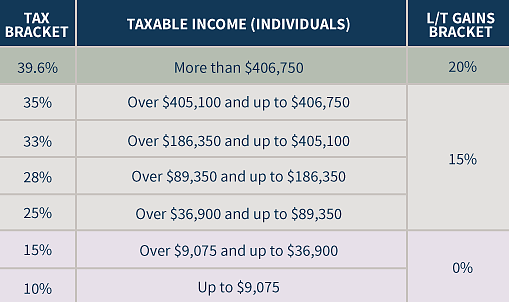Table of ContentsWhich Of These Questions Would You Be Unlikely To Ask When Interviewing A Real Estate Agent? Can Be Fun For EveryoneAll About How To Become A Real Estate Agent In ArizonaAn Unbiased View of What Makes A Good Real Estate Agent
Published by: Kaplan Real Estate Education Updated: May 19, 2020Deciding to end up being a realty representative is a significant relocation in anybody's profession journey. Individuals go into the field of realty from, and at. Everyone has various reasons they believe property is the proper profession option for them.
Becoming a realty agent needs a state license. Each state regulates their own property licensing procedure, and each state's guidelines or rules are slightly various (how to become real estate agent). However, there are a few basic requirements that are always consistent. To be eligible to become a licensed genuine estate salesperson or agent, you need to: Be at least 18 or 19 years of ages (depends on the state) Have legal US residencyComplete your needed prelicense education () Pass your state realty license examinationThese items represent the top-level checklist of what it takes to become a certified property representative, however there are a lot of decisions you need to make along the method that will determine whether your journey succeeds or not.
As a realty salesperson, every day is spent working for you. This means managing your own office management, documentation, prospecting leads, developing relationships, managing contacts, and dealing with purchasers and sellers. Connect to local property representatives and brokers and ask questions about what the everyday work resembles.
Starting a full-time profession as a realty representative can't be dealt with like a hobby (how to become a real estate agent in california). It requires a full dedication. Make certain genuine estate is the best course for you. While the specifics differ by state, there are 5 actions that every person should take to make their license and end up being a property representative.
Your state's realty commission website will list the official prelicensing requirements. Kaplan Realty Education provides a couple pages that narrow this knowledge space down. The Steps to Licensing page is designed to show, in basic steps, what it requires to end up being certified in each state. In addition, Kaplan provides a page devoted to each state's property licensing and continuing education requirements.There are variety of methods you can pick to finish your property prelicensing education requirements, from live classroom locations at local genuine estate schools, some real estate companies, universities and technical schools provide real estate licensing programs, home-study, and online real estate education.
Ensure you register with a school that has a good track record, uses quality material and instructors, and is concentrated on favorable trainee outcomes (how much does a real estate agent make in california). Your will be difficult and detailed, but it will likewise be the springboard to a successful profession as a realty expert. Timing is essential at this action.
This procedure will be state-specific and include a cost. Inspect with your state's genuine estate regulative authority for total details. Some states require you submit finger prints and pass a background check. This can take weeks to procedure. In many states, the application process must be complete before you can register or arrange your exam date.
See This Report on How To Become Real Estate Agent In Texas
Passing the genuine estate exam takes more than ending up the educational requirementsit takes preparation. Not everybody passes the test the very first time. Preparing yourself to pass the state exam takes additional research study time. Kaplan extremely recommends enrolling in an examination prep class. Due to the fact that the ultimate goal is to help you pass the test, many of Kaplan's prelicensing bundles consist of the extensive Examination Preparation Course.

Show up to the exam location with a positive mindset, answer the questions utilizing the enormous understanding bank you built up in your research studies, and go out with a passing grade on your state genuine estate exam!Your passing grade on your state property licensing test does not rather suggest you have a license yet.

Consider discovering a property broker early in your licensing process. When you have actually completed your prelicensing education requirements and passed your examination, you and your broker will both need to complete final documentation with the state. As soon as the form is accepted, your license will be provided, and you may practice genuine estate under the sponsorship of the broker.
Working as a realty representative provides a good deal of variety. With different clients and different houses, you will not be doing the exact same thing every day. You may likewise get to be your own manager, satisfy and deal http://cesaruwcf903.trexgame.net/the-what-is-the-business-code-for-irs-rental-real-estate-management-ideas with lots of individuals, and enjoy the satisfaction of assisting them through one of life's major turning points.
Getting a realty license is relatively fast and economical, and you do not require a college degreeThe steps involved include researching state requirements, taking a pre-licensing course, taking the licensing exam, deciding in between broker and representative, and then selecting a brokerage. There is a difference between ending up being a realty representative and a realty brokerthe latter are members of the National Association of Realtors and comply with its stringent code of principles.
Bureau of Labor Stats. For genuine estate brokerswho have additional education, testing, and experience requirementsthat figure leaps to nearly $59,720. In general, the danielle milyard greatest 10% of representatives earned more than $111,800 in 2019, and some agents make far more than that. Another perk: Entering into the field is easy. Compared to other professions with similar incomes capacity, getting your real estate license is a reasonably fast and inexpensive processand you don't require a college degree.
There's no such thing as a nationwide realty license; you should meet your state's unique licensing requirements. A good place to begin your research study is your state's property regulatory workplace site, which you can discover by doing an online look for" [your state] real estate regulatory office" or by checking out the Association of Realty License Law Officials (ARELLO)'s regulatory company directory site.
How To Choose A Real Estate Agent For Selling Can Be Fun For Everyone
New York, for instance, has reciprocity with nine states (some states have reciprocity for brokers just): Arkansas, Colorado, Connecticut, Georgia, Massachusetts, Mississippi, Oklahoma, Pennsylvania, and West Virginia. Just like regular licensing requirements, each state has its own process for obtaining a license through reciprocity. No matter where you live, you'll need to take a pre-licensing course from an accredited property licensing school before you can sit for the genuine estate license examination.
In California, for instance, candidates should take three property classes amounting to 135 hours. In New York, the course takes 75 hours. Most states offer a number of methods to satisfy the pre-licensing course requirements, including online classes, brick-and-mortar realty schools, and classes at neighborhood colleges. You may have the ability to save money utilizing one type of class program over another.
Likewise, do your research and be selective when it pertains to selecting a program. The quality of the trainers and materials will affect how well prepared you are to take the examination. Your instructor should explain how to schedule, sign up, and spend for the licensing test (if not, visit your state's realty commission website).
Each section is scored independently, and you must get a passing grade on both areas to pass. If you stop working one or both sections, you'll have the opportunity to retake the examination. Each state has its own rules regarding the number of times you might retake an examination, how long you should wait between tests, and the deadline for completing any retakes.